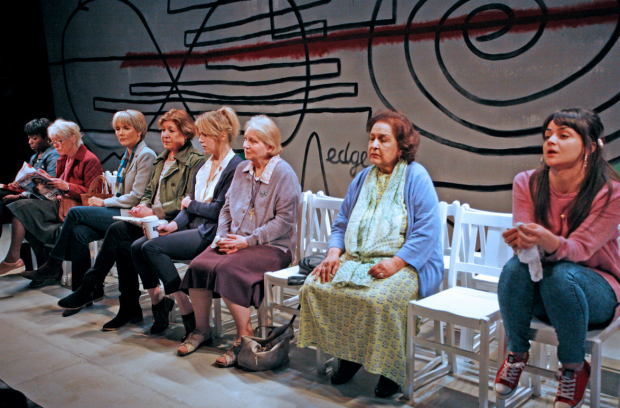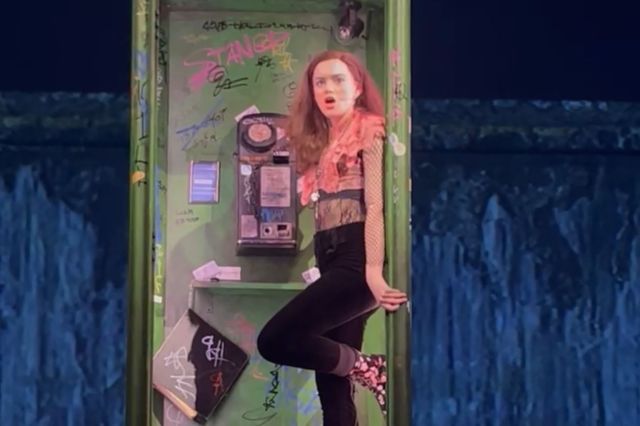As Good A Time As Any (Print Room)
Peter Gill’s play centres on eight women on a Spring morning in London

© Nobby Clarke
The veteran writer-director has put together a chorus of chitter-chatter, all of it deliberately unspecific and beyond banal. The aim is to show that, though everything changes, nothing's ever fundamentally different. "More obits in the paper yesterday," purrs one. "Dad's birthday this month." "Sun's going down." This is, in other words, as good a time as any – however awful things might seem. Birds still sing in the trees. Flowers still bloom. Seasons still shift, one to the next.
Gill has always been great naturalist, able to show life as is – namely, humdrum as hell. His Cardiff-set plays take place over the background noise of day-to-day chores: washing to be done, baths to be run. Nothing much happens and yet lives shift as if by longshore drift. His influence is still felt today. It's there beneath the microscopic naturalism of Beyond Caring, now at the National.
However, it's one thing to watch next to nothing and another to hear all about it at length. His eight women say nothing of note in the vaguest possible terms. They talk about coffee meetings and shortcuts through graveyards, about early morning routines and chance encounters, about weekly shops and washing their hair. Gill's removed anything of significance. Only the background noise remains.
'There's not a businesswoman between them'
That's a hard, hard watch – borderline interminable. Too much banality can bore you to death. As the play hops from one voice to the next, you can't keep hold of the individual narratives, since they're not really narratives at all. You know who these women are – their accents, ages and style choices give them away – but you've no idea why they're interesting.
Broadly speaking, they're not. Gill's examining women more generally and he suggests an ingrained inequality. All eight are somehow secondary to men, anchored to household chores and children. There's not a businesswoman between them. The title starts to look ironic: flagging up feminism's failings.
As it continues, they come to seem interchangeable. Monologues knock together, as unrelated women answer one another as if mothers and daughters. In time, with age, their roles and their lives will change. Daughters become mothers become grandmothers. Lovers become wives become widows. Behind them, in sculptor Bruce McLean's design, is a huge Miro-like mural, all roundabout arrows going nowhere, swallowing their tails. The seats are set up like musical chairs.
Gill's writing reverberates with children and dead men, husbands and fathers, and it seems to advocate parenthood, in spite of the harshness of life. As the old saying goes, there's never a good time to become a parent.
However, all this is utterly murky and mystifying in performance. Gill's text is concertedly poetical, written in Beckettian fragments, but spoken like the mundane meanderings of Bennett's Talking Heads. A static staging only drags things down, despite the best efforts of an ensemble that includes Hayley Squires, Roberta Taylor and Lucy Fleming. Having struggled to stay alert, I figured I'd re-read the script – only to nod off in the process.
As Good a Time as Any runs at the Print Room until 23 May












